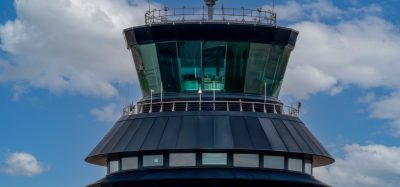Could impending industry challenges disrupt Groupe ADP’s stability?
- Like
- Digg
- Del
- Tumblr
- VKontakte
- Buffer
- Love This
- Odnoklassniki
- Meneame
- Blogger
- Amazon
- Yahoo Mail
- Gmail
- AOL
- Newsvine
- HackerNews
- Evernote
- MySpace
- Mail.ru
- Viadeo
- Line
- Comments
- Yummly
- SMS
- Viber
- Telegram
- Subscribe
- Skype
- Facebook Messenger
- Kakao
- LiveJournal
- Yammer
- Edgar
- Fintel
- Mix
- Instapaper
- Copy Link
Posted: 9 October 2019 | Juliana Gallo - S&P Global Ratings | No comments yet
Despite near-term challenges, Groupe ADP’s operating performance and business fundamentals should remain sound, says Juliana Gallo, Director, Infrastructure EMEA, S&P Global Ratings.


For Groupe ADP, France’s largest airport operator, internal and external developments on the horizon could cause some turbulence. Notably, the effects on airports’ traffic trends and retail businesses – a side-effect of Europe’s weakening economic environment – could weigh negatively on Groupe ADP’s credit quality when combined with its ambitions for international expansion and a sizable investment plan of €6 billion for the next regulatory period (2021-2025). In addition, S&P Global Ratings are monitoring the privatisation process of Groupe ADP which – though on hold pending a referendum – carries an event risk should a change in ownership occur.
Yet, irrespective of these challenges ahead, the group still has many credit strengths in its favour. Not only does Groupe ADP enjoy an excellent competitive position thanks to Paris Charles de Gaulle, Europe’s second-largest airport, the wider group benefits from a resilient traffic and passenger mix across its management portfolio comprising of 26 international airports. As such, it can be believed that Groupe ADP will be able to manage its heavy capex programme and future acquisitions, while maintaining credit metrics commensurate with an ‘A+’ rating.
Potential change in ownership carries event risk
The government tabled its privatisation plans in summer 2018, but any sale has been delayed until at least 2020 after France’s Constitutional Court – on 9 May 2019 – approved a Referendum on the government’s privatisation project to dispose its 50.6 per cent shareholding stake. The proposed sale of the government’s holdings in some of France’s largest corporates had been reportedly touted as part of an economic modernisation programme to cut the national deficit and to finance an innovation fund.
However, a referendum on Groupe ADP’s ownership isn’t a foregone conclusion. Under this referendum process, the shared initiative (RIP) must win the support of over 4.7 million signatories to win the right to be put to the full electorate as a referendum. On 11 September 2019, the signature count stood at 761,000, according to the Constitutional Council – little over 15 per cent of the required total. At this stage, we do not expect any direct impact on the rating from the privatisation process or debate, all else being equal.
But, with the sale still a possibility, we would assess any rating implications stemming from, among other things, the new owners’ financial policy, business strategy and Groupe ADP’s position and structure within the new group as the news flow develops.
International expansion could weigh on business risk
In parallel, Groupe ADP continues pursuing opportunities to expand internationally as a way to replace the cash flow lost from the closure of the Turkey-based TAV Group’s main subsidiary, Ataturk Airport, in Istanbul in April 2019.
In 2018, Ataturk airport contributed some €250-300 million to the group’s EBITDA. As a result, the contribution from Groupe ADP’s international businesses (mainly in high-risk countries) to its EBITDA might fall to about 20 per cent in 2019 (from 30 per cent in 2018) by our estimates. We understand that Groupe ADP has participated in bids to acquire and operate airports in Bulgaria and Japan, but none of these are yet to be successful.
Importantly, however, further international expansion could weigh negatively on our assessment of Groupe ADP’s business risk and, ultimately, its rating. The strategy may represent a double-edged sword: On one hand, international expansion could provide Groupe ADP with additional business growth and geographic diversification. But, equally, the quality of the assets and the terms and conditions of future acquisitions could adversely affect its credit quality.
This is because of the increasing exposure to less predictable regulatory frameworks, country or currency risks, or integration issues increasing operating risks. In turn, should we see these factors or any increase to the volatility of Groupe ADP’s earnings and profitability, we may revise its business risk assessment downward.
Equally important as a rating driver is how additional leverage to fund future acquisitions and/or investments may impact Groupe ADP’s credit quality. We expect S&P Global adjusted FFO to debt of around 20 per cent to be commensurate with Groupe ADP’s ‘A+’ rating. That said, it intends to embark on a sizable capital expenditure programme of about €6 billion during the next regulatory period, ERA 4 – almost double the €3.1 billion investment programme set out for the current regulatory period. Assuming the assumptions set out on the initial proposal for ERA 4 (2021-2025), we expect Groupe ADP’s FFO to debt to hover around 20-22 per cent – and this will likely constrain credit metrics and rating headroom.
A stable outlook for Groupe ADP
Despite these challenges ahead, the outlook on Groupe ADP’s corporate credit rating remains stable. The stability of the ratings depends on the company success in continuing to deliver solid operating performances and the ability to manage its heavy capex programme and future acquisitions, while maintaining credit metrics commensurate with a ‘A+’ rating.
Certainly, the market is following Groupe ADP’s direction with much interest. We at S&P Global Ratings are keeping a close eye on any developments as they arise.

















